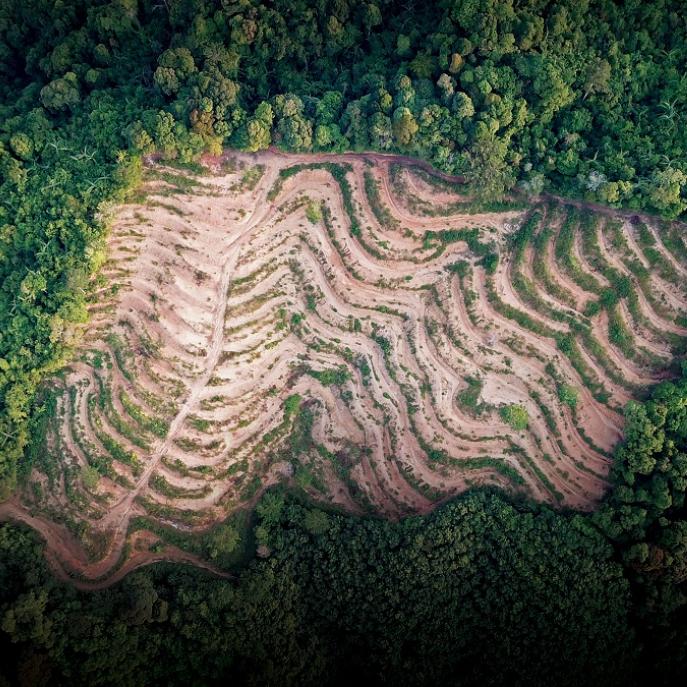Degradation of nature is linked to economic damage and increased risk of pandemics
Future pandemics will emerge more often, spread more rapidly, do more damage to the world economy and kill more people than COVID-19 unless there is a transformative change in the global approach to dealing with infectious diseases, warns a major new report on biodiversity and pandemics by 22 leading experts from around the world.

Convened by the Intergovernmental Science-Policy Platform on Biodiversity and Ecosystem Services (IPBES) for an urgent virtual workshop about the links between degradation of nature and increasing pandemic risks, the experts agree that escaping the era of pandemics is possible, but that this will require a seismic shift in approach from reaction to prevention.
COVID-19 is at least the sixth global health pandemic since the Great Influenza Pandemic of 1918, and although it has its origins in microbes carried by animals, like all pandemics its emergence has been entirely driven by human activities, says the recently released report.
It is estimated that another 1.7 million currently ‘undiscovered’ viruses exist in mammals and birds – of which up to 827,000 could have the ability to infect people.
“There is no great mystery about the cause of the COVID-19 pandemic – or of any modern pandemic”, said Dr. Peter Daszak, President of EcoHealth Alliance and Chair of the IPBES workshop.
“The same human activities that drive climate change and biodiversity loss also drive pandemic risk through their impacts on our environment.
Changes in the way we use land; the expansion and intensification of agriculture; and unsustainable trade, production and consumption disrupt nature and increase contact between wildlife, livestock, pathogens and people. This is the path to pandemics.”
Pandemic risk can be significantly lowered by reducing the human activities that drive the loss of biodiversity, by more significant conservation of protected areas, and through measures that reduce unsustainable exploitation of high biodiversity regions.
This will reduce wildlife-livestock-human contact and help prevent the spillover of new diseases, says the report.

“The overwhelming scientific evidence points to a very positive conclusion.
We have the increasing ability to prevent pandemics – but the way we are tackling them right now largely ignores that ability. Our approach has effectively stagnated – we still rely on attempts to contain and control diseases after they emerge, through vaccines and therapeutics.
We can escape the era of pandemics, but this requires a much greater focus on prevention in addition to reaction.”
said Dr. Daszak.
Pointing to the likely cost of COVID-19 of $8-16 trillion globally by July 2020, it is further estimated that costs in the United States alone may reach as high as $16 trillion by the 4th quarter of 2021.
The experts estimate the cost of reducing risks to prevent pandemics to be 100 times less than the cost of responding to such pandemics, “providing strong economic incentives for transformative change.”
Some of the recommendations suggested in the report:
- Enabling changes to reduce the types of consumption, globalized agricultural expansion and trade that have led to pandemics – this could include taxes or levies on meat consumption, livestock production and other forms of high pandemic-risk activities.
- Reducing zoonotic disease risks in the international wildlife trade through a new intergovernmental ‘health and trade’ partnership; reducing or removing high disease-risk species in the wildlife trade; enhancing law enforcement in all aspects of the illegal wildlife trade and improving community education in disease hotspots about the health risks of wildlife trade.

- Valuing Indigenous Peoples and local communities’ engagement and knowledge in pandemic prevention programs, achieving greater food security and reducing consumption of wildlife.
- Closing critical knowledge gaps such as those about key risk behaviours, the relative importance of illegal, unregulated, and the legal and regulated wildlife trade in disease risk, and improving understanding of the relationship between ecosystem degradation and restoration, landscape structure and the risk of disease emergence.
The IPBES workshop report is one of the most scientifically robust examinations of the evidence and knowledge about links between pandemic risk and nature since the COVID pandemic began – with contributions from leading experts in fields as diverse as epidemiology, zoology, public health, disease ecology, comparative pathology, veterinary medicine, pharmacology, wildlife health, mathematical modelling, economics, law and public policy.
The report is also strongly scientifically substantiated, with almost than 700 cited sources – more than 200 of which are from 2020 and 2019 – which offers decision-makers a valuable analytical snap-shot of the most up-to-date data currently available.
IPBES is an independent intergovernmental body comprising more than 130 member Governments. Established by Governments in 2012, it provides policymakers with objective scientific assessments about the state of knowledge regarding the planet’s biodiversity, ecosystems and the contributions they make to people, as well as the tools and methods to protect and sustainably use these vital natural assets.















